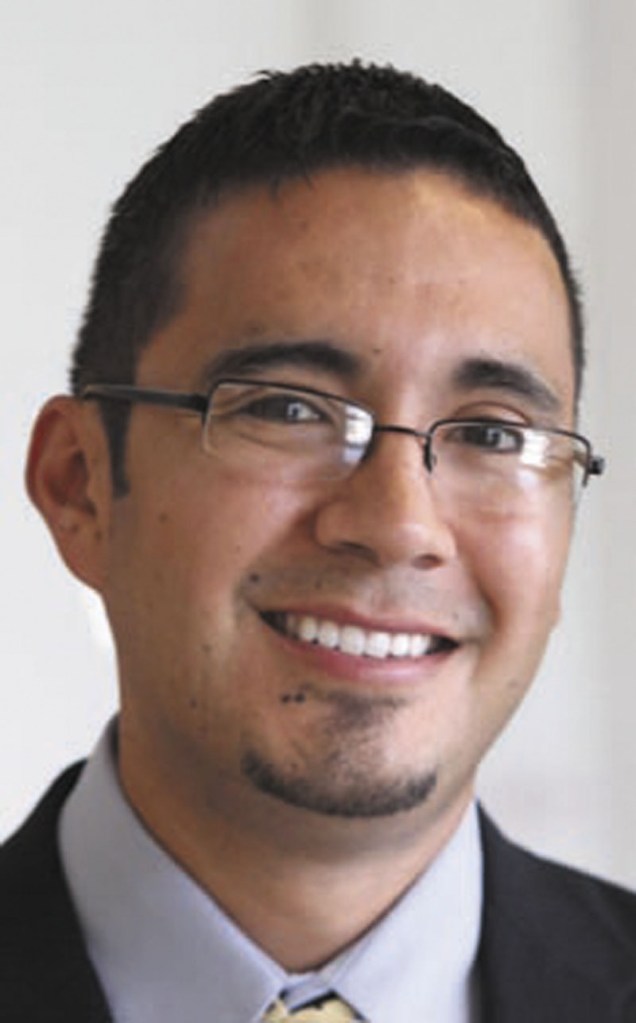HALLOWELL — Schools across the state have struggled to maintain services as lawmakers have tightened the spigot from state coffers over the last few years, but the newest budget proposals from the governor’s office represent a major shift from state to local funding for schools and community services.
That was the message delivered to local lawmakers recently who gathered at Hall-Dale Elementary School to hear from town and school officials within Regional School Unit 2, which includes Dresden, Farmingdale, Hallowell, Monmouth and Richmond.
Selectmen and managers from all five towns attended a meeting last Wednesday, which included five senators and House members representing each of the communities.
“It’s important you as legislators understand things we’ve been forced to cut and will continue to cut,” said Dawn Gallagher, chairwoman of the RSU 2 board of directors.
Virgel Hammonds, superintendent for RSU 2, said state subsidy has dwindled by $1.1 million since the school district was created in 2009. The board has cut another $3.9 million to lessen the tax increase on local property owners.
But because the state funding formula, which determines how much the state will pay to school units, is based in part on the local school budget, the cuts have had a double impact, Gallagher said.
“Every time we cut the budget it means a corresponding reduction in state subsidy,” she said. “We end up hurting ourselves.”
Hammonds said the RSU has attempted to make up for some of those reductions by seeking state grants to cover particular programs aimed at providing special services for students, but when the school district receives a grant there is a corresponding reduction in state subsidy.
“To me, that’s a difficult pill to swallow,” Hammonds said. “The federal money is supplemental, to meet the needs of our most needy kids.”
The same funding formula legislators use to justify the cuts requires lawmakers to fund education at 55 percent, but the state has failed to meet that requirement at any point in history. The biennial budget Gov. Paul LePage has proposed for the 2014-2015 fiscal years would drop funding to $895 million, which is less than the state gave in 2007, Hammonds said. That represents 44 percent of the funding required by the state formula.
“What began as a high-performing school funding model has evolved to a cost-containment funding model,” Hammonds said.
Rep. Sharon Treat, D-Hallowell, and other legislators urged community members to contact their representatives to let them know the impact of the proposed budget cuts.
“We’re facing really difficult times,” Treat said. “I think it’s a potentially devastating budget for schools.”
Towns have shared in the burden as they’ve made cuts to municipal budgets while the local share for education has increased. Monmouth Selectman Harold Jones praised the RSU 2 board for their cost-saving efforts, but the town’s taxes continue to increase. He said Monmouth selectmen have responded by making cuts to infrastructure, such as paving, that were once considered untouchable.
“We’ve cut away the meat,” Jones said. “We’re going to get down to the bone.”
Farmingdale Selectman David Sirois said there are no more cuts his town can make.
“We simply have to raise taxes,” he said. “We’ve been doing that for four years.”
Monmouth Selectman Timothy McDonald said RSU 2 teachers have continued to receive yearly raises while many in his town have been laid off, taken pay cuts or are elderly and have had only one small increase in Social Security in the past several years.
“These people own a lot of property and they want to stay in their homes,” McDonald said. “A lot of them aren’t able to do so. We’re asking all these people for more money every year. It’s time the teachers take a year off from a raise. It will give the rest of us a chance to catch up.”
Richmond Town Manager Marian Anderson said the town would lose a police officer and a town office employee. The town has already shut off streetlights in an effort to save money. Anderson said the governor’s plan to eliminate the homestead exemption would be an automatic property tax increase of $170 a year.
Anderson urged lawmakers to other sources of revenue, such as a lodging tax, to lessen the burden on property owners.
“We can’t continue on the way we’ve done business,” Anderson said.
Craig Crosby — 621-5642
ccrosby@centralmaine.com
Send questions/comments to the editors.



Success. Please wait for the page to reload. If the page does not reload within 5 seconds, please refresh the page.
Enter your email and password to access comments.
Hi, to comment on stories you must . This profile is in addition to your subscription and website login.
Already have a commenting profile? .
Invalid username/password.
Please check your email to confirm and complete your registration.
Only subscribers are eligible to post comments. Please subscribe or login first for digital access. Here’s why.
Use the form below to reset your password. When you've submitted your account email, we will send an email with a reset code.